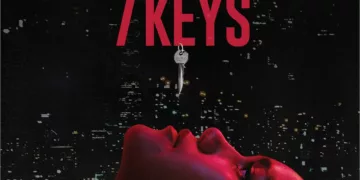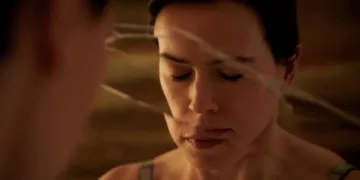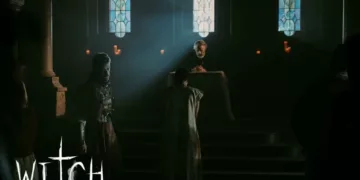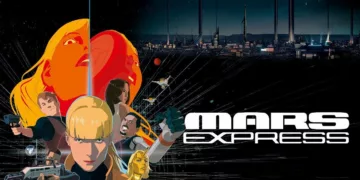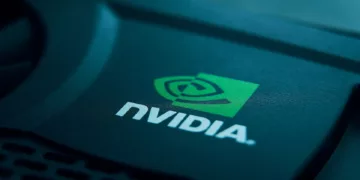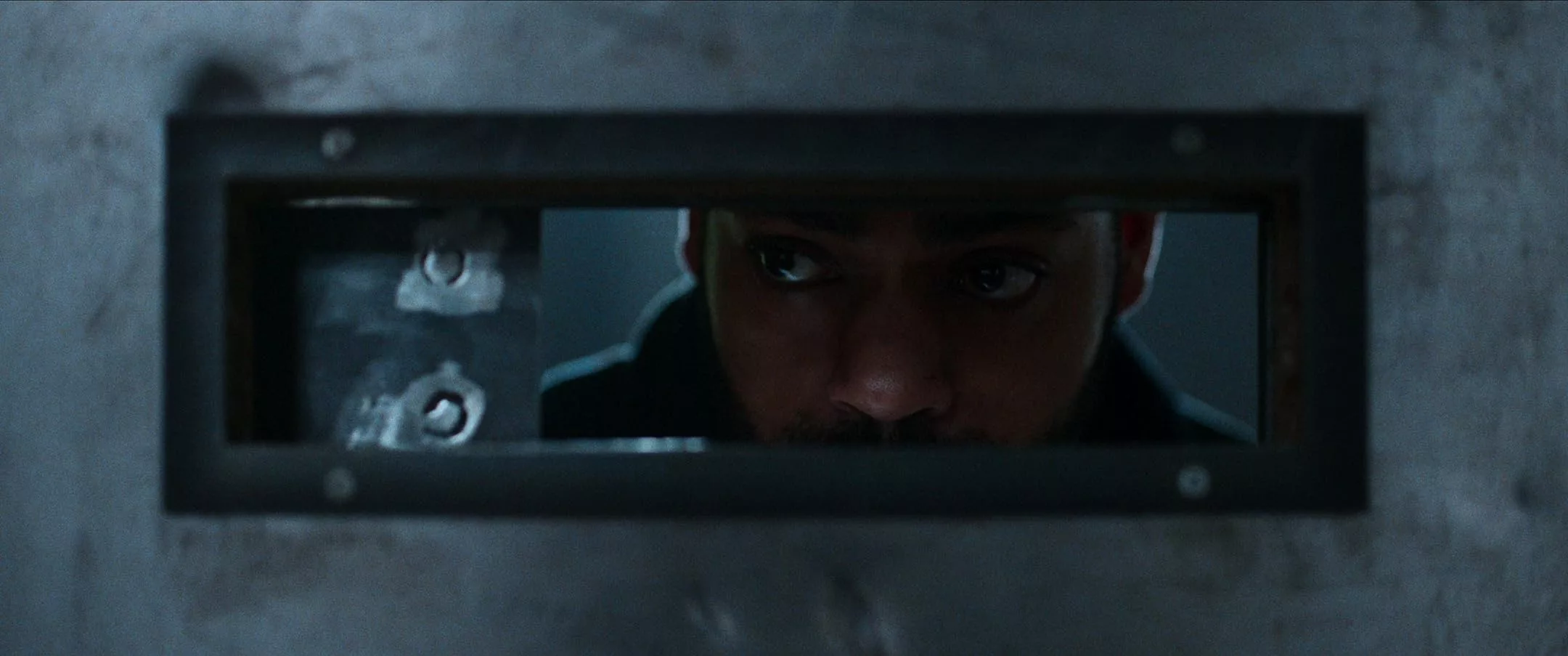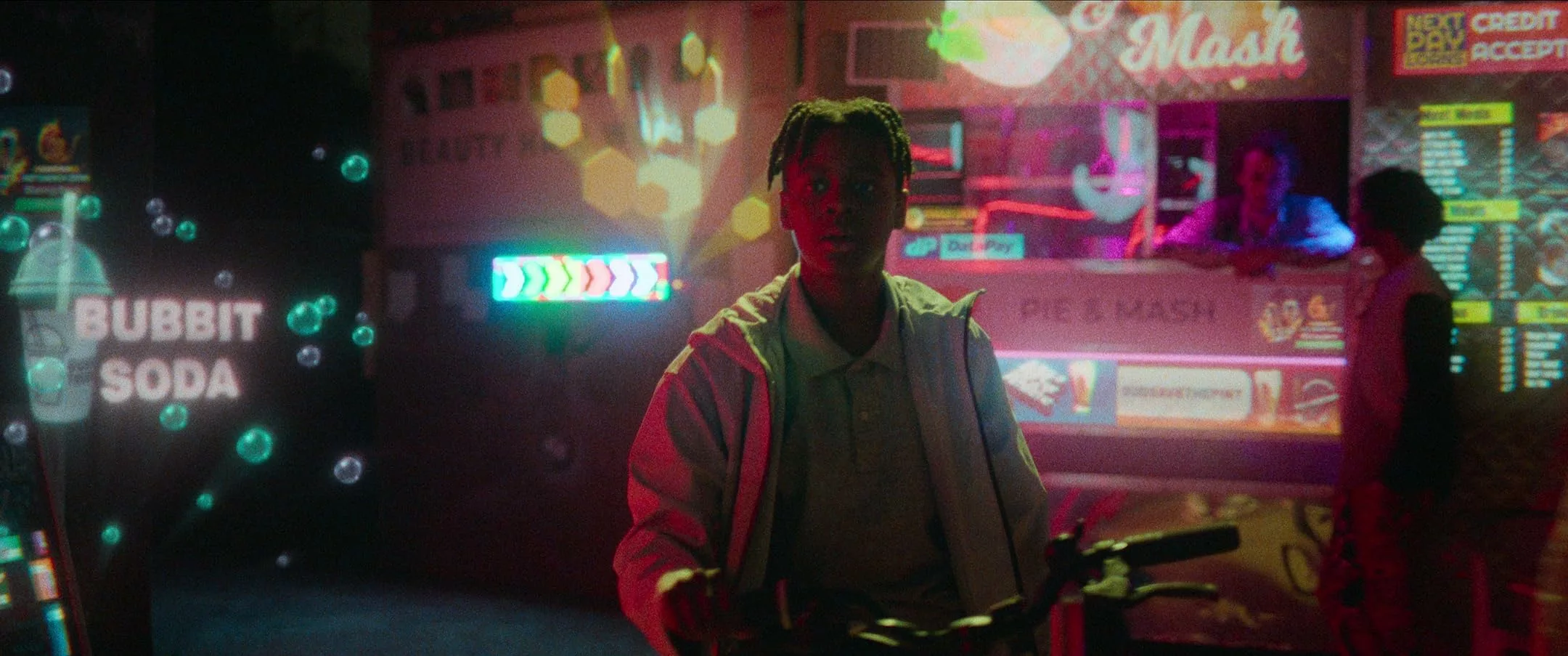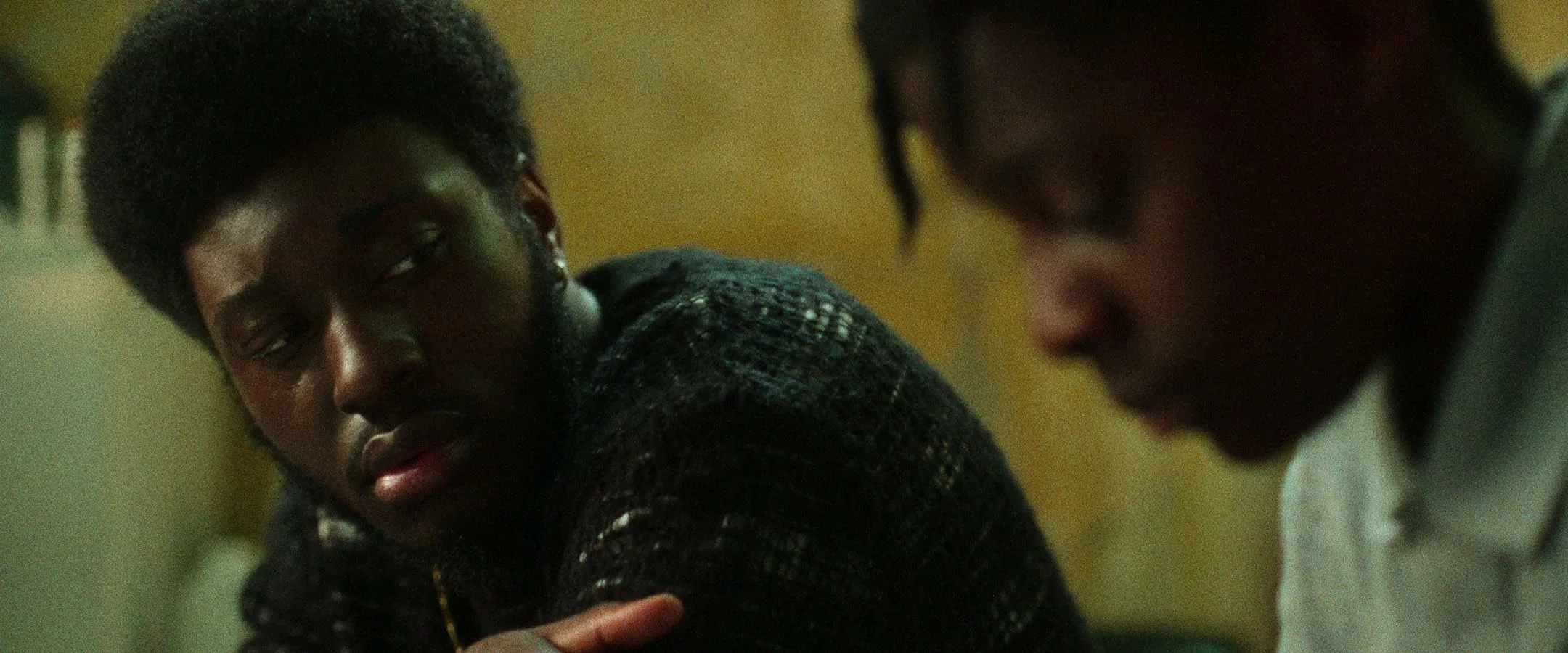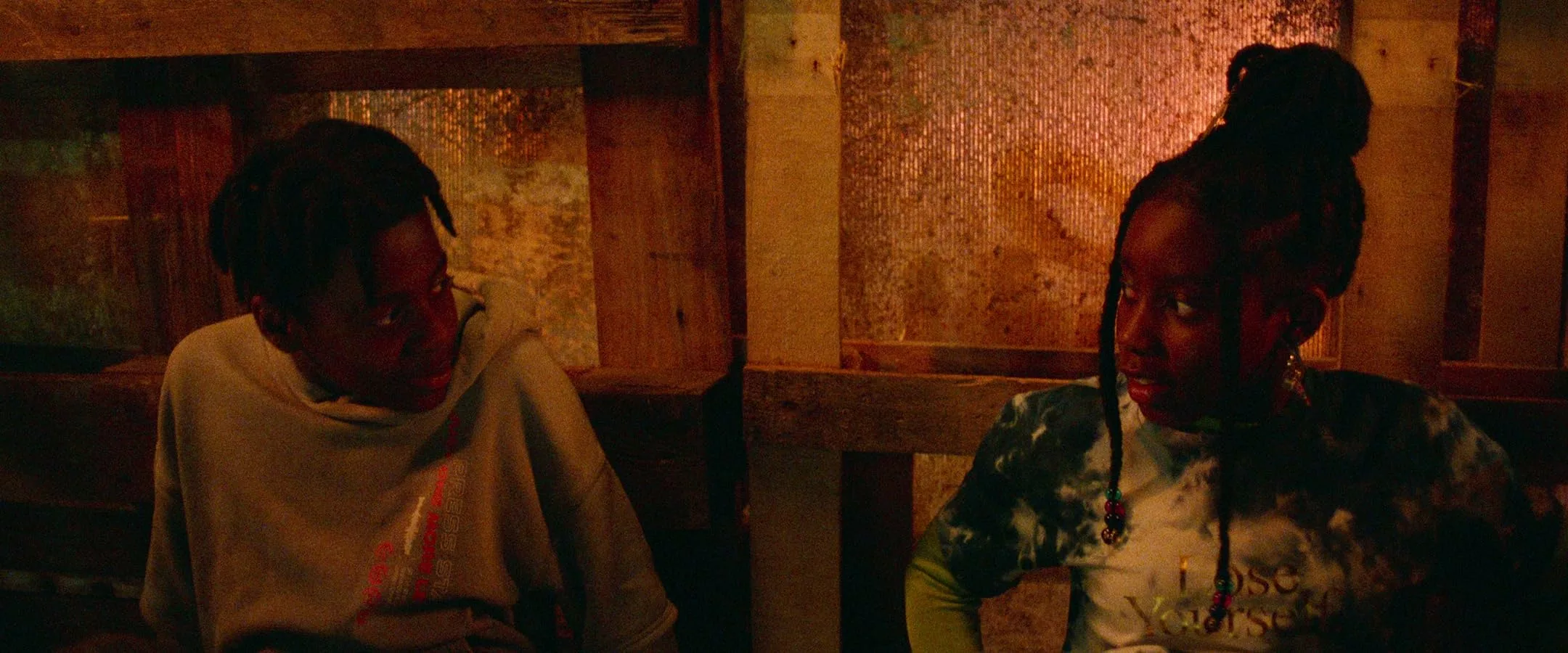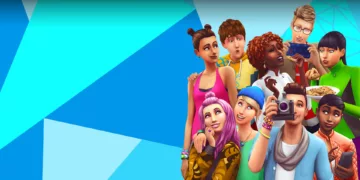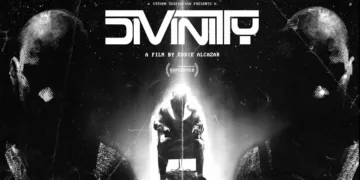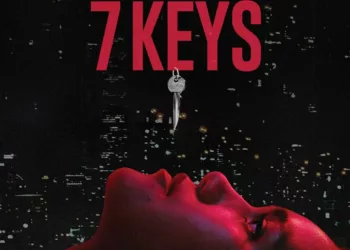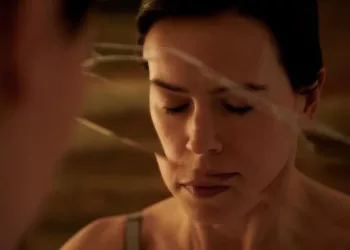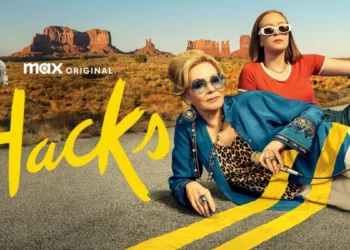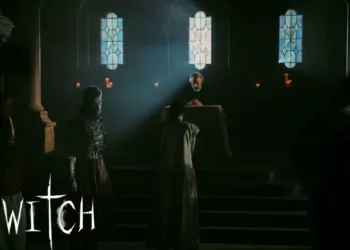The Kitchen throws us into a tense vision of future London, where economic divides have birthed a draconian system of haves and have-nots. Our story unfolds in the last standing public housing project, the ramshackle but lively complex known as “The Kitchen.” This vibrant community bands together even as authorities increasingly blockade them from essential services. Inside the lively warren of market stalls and tiny apartments, residents cling to fleeting moments of joy and normalcy—underground dance parties, home-cooked meals—amid ever-present drones and police raids.
We experience this unjust world through the eyes of Izi, a jaded striver counting down the days until he can flee The Kitchen for good. But when he crosses paths with a recently orphaned boy named Benji, Izi finds himself conflicted. Does he cling to his long-held plan for a “better life,” or does he step up to guide this lost youth through the turmoil? The Directors examine complex questions of social responsibility and human connection, all while transporting us to a frighteningly believable future that may hit closer to home than we’d like to admit.
A Personal Lens on Social Strife
The Kitchen marks an auspicious directorial debut for Daniel Kaluuya and Kibwe Tavares, two rising talents with unique perspectives to bring to this socially-conscious sci-fi story. For Kaluuya, who grew up in public housing in London, the film’s setting and themes hit close to home.
Having witnessed firsthand the impacts of gentrification and institutional neglect in these communities, he infuses the narrative with an authenticity and urgency. Yet he balances this with a spirit of hope, highlighting the resilience and vibrancy of The Kitchen’s residents. Architect Tavares lends his distinctive visual flair to realize this world on screen.
From the towering Brutalist architecture of The Kitchen itself to the sleek but sterile luxury high-rises prized by the elite, he designs sets rich in metaphorical meaning. Tavares’ architectural expertise manifests through well-considered world building details that make the universe feel eerily tangible. We sense these two directors’ passion not only to craft a compelling dystopian thriller, but to voice rarely-heard perspectives on the social fractures lurking below society’s surface.
An Odd Couple Formed By Chance
At the story’s center is Izi, a jaded young striver counting down the days until he can flee The Kitchen’s dysfunction and persecution. He works at Life After Life, an eerie yet ecologically-minded funeral home that sustainably converts human remains into tree planters. As Izi toils to save enough for his own sleek high-rise apartment, his empathy runs dry…until one client changes everything.
This client is Benji, a boy mourning his mother’s death. Suspecting Izi may be his long-lost father, Benji pursues him back to The Kitchen. Though initially resistant, Izi finds himself looking out for the newly orphaned Benji. He tries steering the boy away from the tempting but dangerous world of bike gang leader Staples, who recruits dispossessed youth to raid food convoys.
As the unlikely pair’s bond deepens, Izi grapples with a dilemma: cling to his long-held escape plans or step up to guide Benji during this traumatic transition? The choice tests Izi’s sense of duty and the limits of his compassion.
Peppered throughout are vibrant supporting characters, like the sagacious pirate radio DJ Lord Kitchener (played with gusto by ex-footballer Ian Wright). And Benji finds his own ally in spunky friend Ruby, who adds moments of humor and heart to balance the story’s starker elements.
A Not-So-Distant Future That May Hit Close to Home
More than just a gripping tale, The Kitchen doubles as trenchant social commentary wrapped in sci-fi packaging. Though set over 20 years in the future, its themes probe issues already threatening to tear at the social fabric today.
Through the government’s cruel treatment of Kitchen residents, the film condemnation of society’s growing indifference to the struggles of the poor and powerless. Evicting the inhabitants to make way for costly new flats, authorities weaponize bureaucracy and law enforcement alike to gradually render the underclasses invisible and voiceless. As support systems crumble, the residents have no choice but to band together in resilience and mutual aid.
The directors retrofit existing London architecture into this dystopian future to eerie effect. Brutalist housing blocks morph into The Kitchen itself, while the once-notorious Holloway Prison becomes a ghoulish hub for police raids. In conceiving a world extrapolated from the most troublesome realities already embedded into the urban landscape, The Kitchen makes its dire warning impossible to ignore.
Yet scattered amidst the gloom are pockets of everyday joy, from impromptu roller disco parties to cookouts on the high-rise rooftops. The vibrant community fills bare concrete walls with expansive street art. And they find solace in the uplifting broadcasts of pirate radio DJ Lord Kitchener. Even as the world closes in around them, The Kitchen’s residents cling proudly to their humanity.
Slick and Stylish Cautionary Tale
Visually, The Kitchen blends sci-fi influences with a gritty realism befitting its socially-conscious aims. The directors take cues from classics like Blade Runner and Total Recall in their sleek, neon-bathed rendering of future London, creating an atmosphere both retro and futuristic. The striking production design oscillates from the grim brutality of police raids to pulsating, makeshift nightclubs glowing with momentary escape.
The script balances its starker themes with a vibrant humor and energy that crackles through the characters’ on-screen chemistry. Top Boy star Kane Robinson brings ample charisma and pathos to anchor the story as the embattled Izi. His scenes with young newcomer Jedaiah Bannerman masterfully toe the line between laugh-out-loud funny and emotionally charged. And football icon Ian Wright provides reliable comic relief as pirate radio DJ Lord Kitchener, his fiery monologues echoing Samuel L. Jackson’s iconic radio host in Do the Right Thing.
While The Kitchen refuses to shy away from the injustice it depicts, the directors take care crafting moments of humanity and connection amid the darkness. Brief respires of joy and community serve as poignant reminders of all their characters stand to lose at the hands of greed and indifference. This balanced tone ensures the film resonates not just as slick sci-fi, but as a cautionary tale rooted in truth.
A Promising New Voice in the Genre
As debuts go, The Kitchen offers a considerable achievement for up-and-coming directors Kaluuya and Tavares. They proudly echo influences from sci-fi benchmarks while infusing the genre with rarely spotlighted perspectives and social issues. This rich world-building promises even greater narratives to come should the filmmakers continue down this path.
What The Kitchen lacks in narrative innovation, it compensates through stellar acting and an unflinching indictment of societal fissures most movies gloss over. Kaluuya fans or lovers of gritty British genre films will find its ominous future worth the visit. At the helm, his palpable investment in voicing marginalized communities anchors the fantastical elements in a moving way. And Top Boy’s Kane Robinson offers a career-best performance, oozing charisma complicated by a hidden vulnerability. His chemistry with on-screen ward Benji eases viewers through tonal shifts between dystopian dread and touchingly human bonds.
While some plot threads and characters get short shrift in balancing the film’s ambitions, The Kitchen remains a compelling entry in Britain’s limited but acclaimed catalog of social issues sci-fi. More disciplined plotting and thematic focus could have pushed the film into the realm of genre greatness. Yet as it stands, Kaluuya and Tavares have thrown down the gauntlet on this auspicious debut. Their affecting portrait of society’s outcasts banding together amid chaos offers plenty of proof that the best is yet to come.
The Review
The Kitchen
Though not without flaws in narrative and character development, The Kitchen announces the arrival of two directorial talents to watch in Daniel Kaluuya and Kibwe Tavares. Their auspicious debut weds social commentary to science fiction in a visually slick, emotionally resonant package. Centered on the resilient bonds between society's outcasts, this dystopian thriller breeds optimism for the future even as it warns of pitfalls ahead. Buckle up for a genre rollercoaster that takes us to unsettling places, yet never loses sight of its humanity.
PROS
- Strong directorial debut for Kaluuya & Tavares
- Great chemistry between leads
- Immersive world-building and production design
- Socially relevant themes on class and inequality
- Moments of levity and heart balance grittier elements
CONS
- Plot loses momentum in places
- Some underdeveloped characters and threads
- Could have pushed genre boundaries further
- More originality needed to be a sci-fi great

